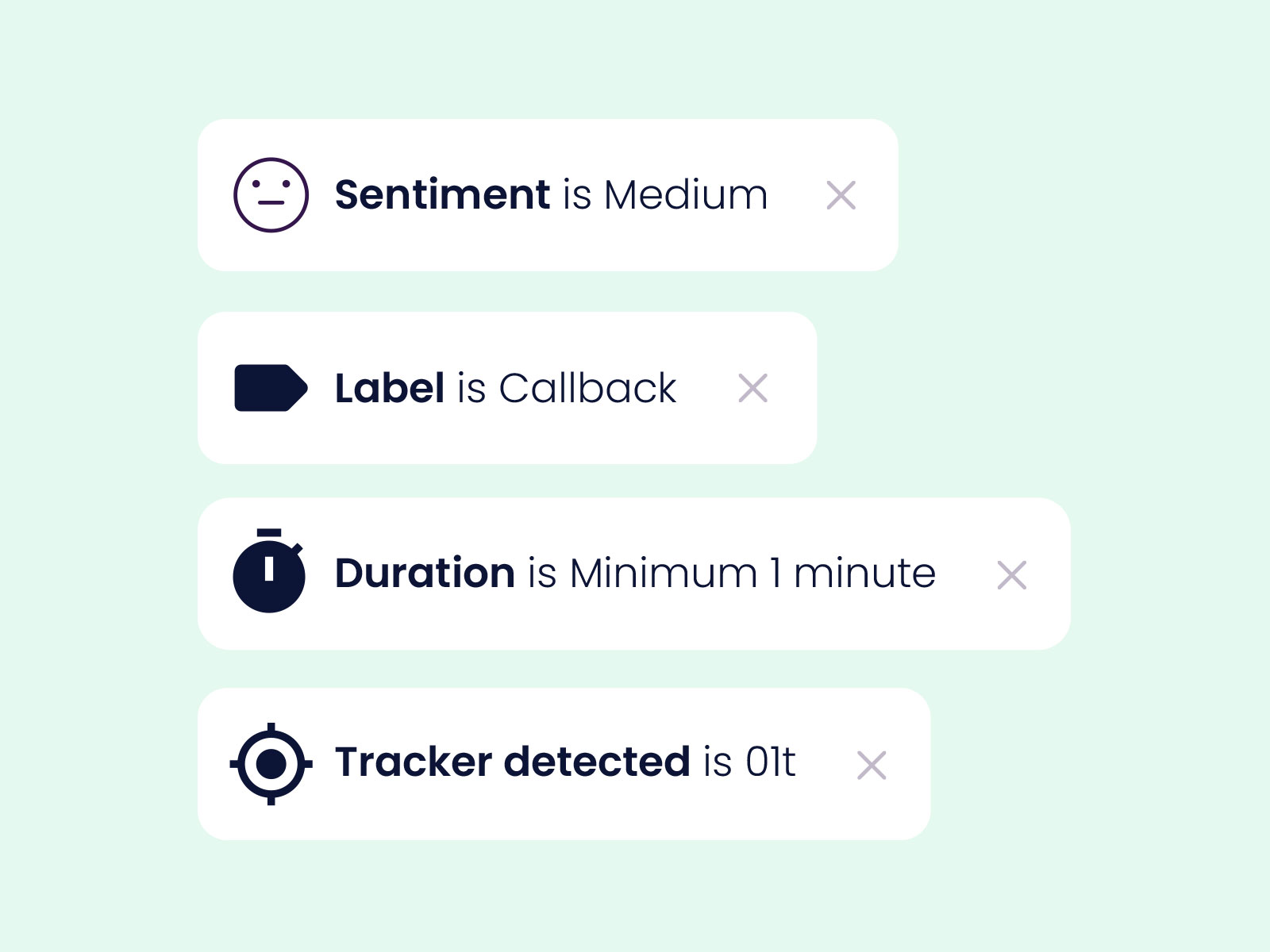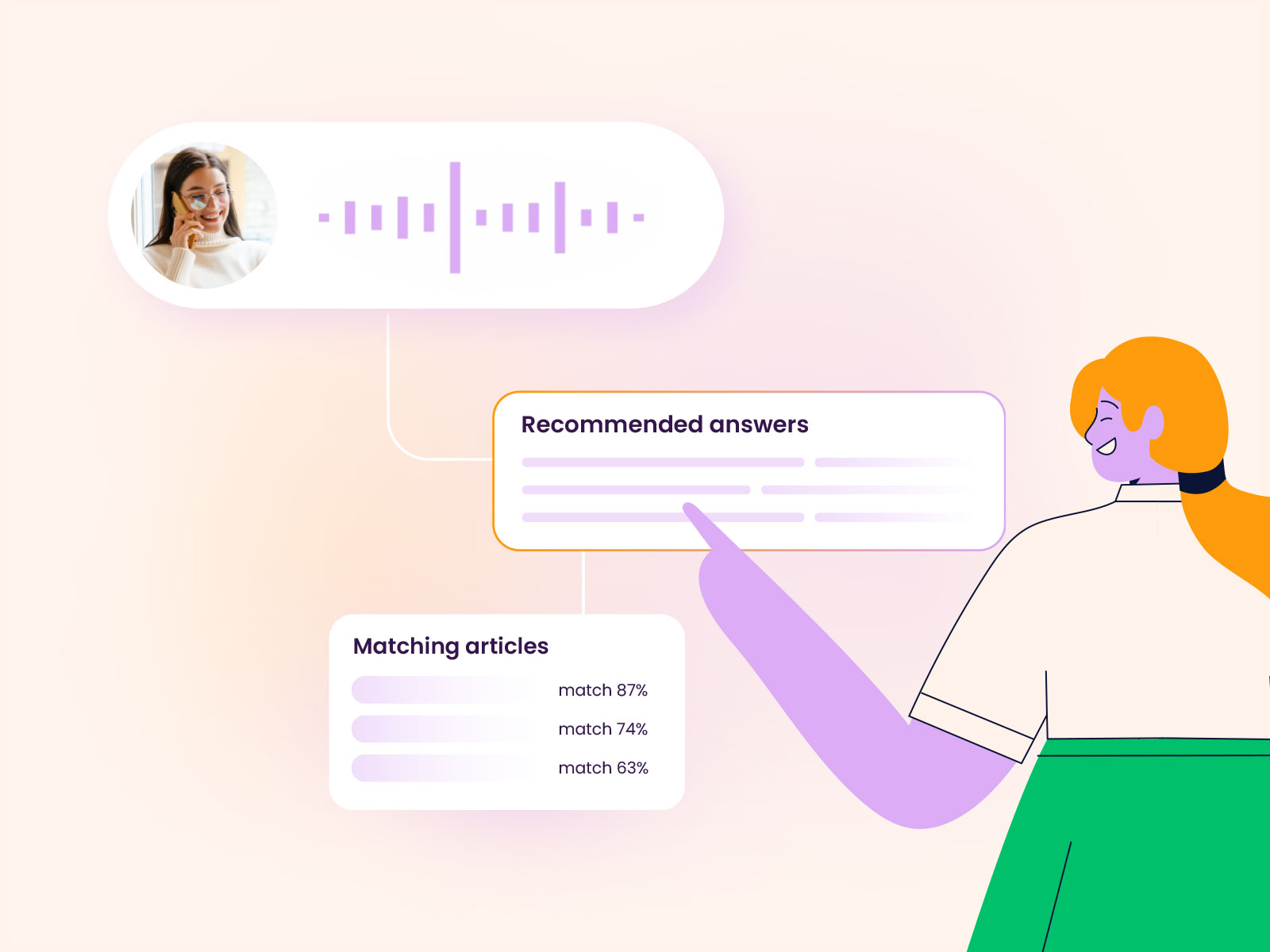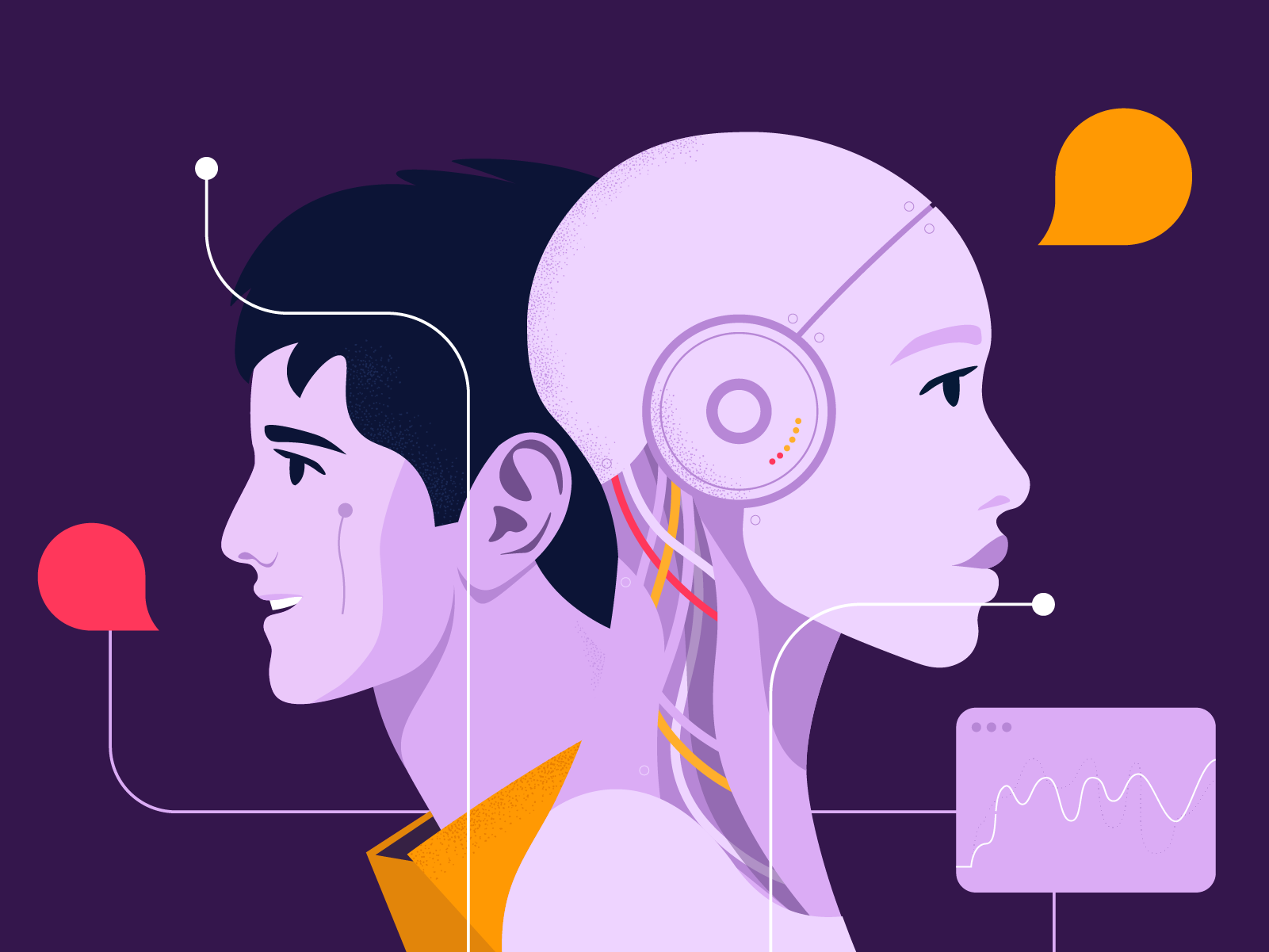In the race to deliver exceptional customer experiences, many CX leaders are turning to AI to transform their support functions. And these technologies are only getting smarter by the day, making a significant impact on the speed and consistency of customer support. But the true impact happens when AI collaborates with human agents, complementing each other to achieve the best outcomes.
Research from Harvard shows that organisations see the greatest performance gains when humans and machines work together. While AI excels at handling routine tasks, human agents bring empathy, understanding, and emotional intelligence—the critical ingredients for building meaningful, long-lasting customer relationships.
Why AI and human collaboration is key to great customer support
Picture this: You’re reaching out to a chatbot for a quick solution, only to get the response, “Sorry, I’m unable to answer this request,” without any guidance on where to go next. It’s frustrating, leaving you with unresolved questions and no clear next steps. This is where a smart collaboration between AI and human agents makes all the difference.
AI tools, like AI chatbots and AI virtual assistants, should be fully integrated into the customer journey and regularly trained to provide accurate, helpful responses. And when AI falls short (like the chatbot example above), it should simply escalate the request to a skilled human agent who can provide the response the customer wants.
The most successful contact centres don’t simply add AI to their processes; they fully integrate it into their operations and customer journeys. Human agents play a crucial role in ensuring this integration while also guiding and training the AI to fit its purpose. When AI is well-trained and continuously optimised, it enhances the speed and quality of support, freeing human agents to handle more complex, emotionally charged situations.
How AI and human agents work together: the perfect blend of efficiency and empathy
By combining AI technology's efficiency with human empathy and skills, contact centres can streamline operations while preserving the human touch that makes CX memorable. Here’s how AI and human agents complement each other:
- Automating routine tasks to free up valuable agent time
Repetitive tasks can drain agents’ energy and motivation. AI can manage these tasks—answering frequently asked questions or handling transactional queries—allowing agents to focus on high-value interactions. By automating simple queries, agents are free to engage in conversations that require problem-solving, empathy, and a human touch, which boosts productivity and job satisfaction alike.
- Real-time support and guidance
AI can empower agents by offering real-time insights and customer data during interactions, making every conversation smoother and more informed. For instance, when assisting a customer with a billing query, AI can pull up relevant account details, past interactions, and suggested solutions, equipping the agent with everything needed to resolve the issue efficiently. This not only saves time but also allows for a more personalised and positive customer experience.
- Voice analytics and trend spotting
AI-powered voice analytics and speech recognition can transcribe calls and identify trends, compliance issues, or training opportunities. This helps improve both agent performance and customer interactions. By analysing these insights, contact centres can make data-driven improvements to their service, enhancing both the agent experience and the quality of support.
- Streamlining knowledge management for faster responses
AI can act as a smart knowledge assistant, instantly retrieving relevant information from vast databases and internal knowledge hubs during live interactions. This equips agents with accurate, up-to-date information, helping them answer customer questions faster and with greater confidence. It reduces time spent searching for answers, letting agents focus on delivering high-quality, personalised support.
- Ensuring reliable AI through training and safeguards
For AI to be a true asset, contact centres need to invest in continuous training and secure safeguards. Well-trained AI systems are better equipped to provide accurate, reliable responses, and supporting agents rather than creating confusion for customers. By regularly updating AI with current data, integrating feedback loops, and implementing strict security measures, contact centres can ensure that AI doesn’t just assist but also protects customer interactions. These practices help agents trust the AI’s responses, knowing it’s designed to enhance, not hinder, the customer experience.
Relevant content: The ultimate AI glossary for customer service.
Outcomes of effective human + AI collaboration in contact centres
Effective collaboration between AI technology and human agents can transform customer service. Here’s how:
- Increased productivity: Research from the National Bureau of Economic Research (NBER) shows that agents using a generative AI tool saw nearly a 14% boost in productivity. By automating repetitive tasks and providing real-time assistance, AI frees up agents to focus on higher-value interactions, significantly improving overall efficiency.
- Higher agent satisfaction: AI’s ability to handle routine tasks helps reduce agent burnout and boosts job satisfaction. With less time spent on repetitive activities, agents can focus on the parts of their role that require empathy, problem-solving, and emotional intelligence—fostering a more fulfilling work experience.
- Improved customer experience: According to CMSWire, 73% of experts believe that AI in customer support will significantly enhance customer experience in the near future. But it’s the personal touch of human agents that truly differentiates great customer service. By combining AI’s efficiency with human empathy, organisations can deliver faster, more personalised interactions that improve customer satisfaction and loyalty.
- Better decision-making and insights: AI not only helps improve the day-to-day tasks in contact centres but also provides valuable insights that can inform strategic decision-making. For example, AI-driven analytics can help identify customer trends, pain points, and emerging issues, allowing businesses to make proactive changes and offer solutions before problems arise.
The importance of agent training
As AI continues to play an expanding role in customer support, training becomes essential for contact centre teams to harness its potential fully. Agents should be equipped with skills to craft effective AI prompts and maximise the technology in their roles. Equally important are soft skills training in empathy and active listening, which enable agents to manage complex and sensitive customer interactions effectively.
A balanced future for the contact centre: AI + human agents
The future of contact centres lies in the collaboration between human agents and AI technology. While AI offers remarkable efficiency, it’s crucial for CX teams to integrate it responsibly, with proper training and secure safeguards to ensure consistent, reliable responses.
AI should serve as a supportive tool—automating repetitive tasks, analysing data, and suggesting responses—to allow agents to focus on complex, high-value interactions that foster customer loyalty. However, it’s the human touch that delivers the empathy, creativity, and personal connection customers truly seek. By combining these strengths, organisations can build a customer experience that’s efficient, personalised, and memorable.
At Puzzel, we’re committed to empowering contact centres with AI and equipping agents to unlock their full potential. By pairing AI-powered technology with the human touch, we help organisations create efficient, customer-centric support strategies that stand out.
Curious to learn more about Puzzel's AI solutions? Explore our products or book a demo.






